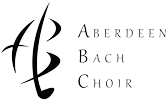Off to Dublin
Handel’s career took an unforeseen development in 1741 when he received an unexpected invitation to visit the Lord Lieutenant of Ireland (3rd Duke of Devonshire) and to give concerts for charitable trusts. After decades of success with Italian opera, Handel’s reputation in London was waning, and this invitation to Ireland was no doubt very welcome. Handel hastily requested a new oratorio text from Jennens, by now his librettist of choice, and in the three short weeks between August and September composed Messiah. Handel travelled to Dublin with John Smith (1712-1795), his amanuensis and secretary, and took lodgings. Handel was extremely well received by the Dubliners, and within weeks his popularity was evident and his reputation in Ireland assured. He remained in Dublin for the remainder of 1741 and throughout 1742, giving performances of oratorios and concerts of anthems and instrumental music for a personal subscription series and also for local Dublin charities. The first performance of Messiah in Dublin was something of a spectacle. The audience numbered over 700 – a somewhat greater capacity than the theatre was designed for, and ladies were asked “not to wear hoops in their skirts” and gentlemen “to leave off wearing their swords” in order to accommodate as many people as possible. The presence of Handel himself was certainly a huge draw – the man had celebrity star status after all, and the presence of the solo contralto, Susannah Cibber, who was, at the time, embroiled in a hugely scandalous and public divorce, would also have been an attraction. This first performance so incensed Jonathan Swift, Dean of St Patrick’s Cathedral Dublin at the time, that he published a notice forbidding any person connected with the cathedral from attending or participating in any way. However, the large number of performers drafted in who were in fact on the musical staff of the cathedral, as well as the sheer volume of people in the audience, suggest that he was somewhat in a minority. His objection was the performance of sacred text in a secular venue; the oratorio, thinly disguised as theatre, was regarded as an act of religion – welcome in a church but totally unsuitable and inappropriate in a theatre. The first performance in London, at Covent Garden on March 23rd 1743, also divided opinion somewhat. Some thought the work blasphemous, and again there were objections to sacred text being performed within the walls of a secular theatre more accustomed to the presentation of vulgar comedies. In an attempt to pre-empt this, Handel dropped the title Messiah, and advertised the performance without any reference to it being a sacred work. Unsurprisingly, this didn’t really seem to make any difference, and once the audience realised what the libretto was about the performance fell flat. It was to be almost another decade before the work eventually found favour in London, and then not in a theatre, but in the Chapel of the Foundling Hospital. After this brief revival, regular presentations of the work continued throughout the remainder of Handel’s life, and it was, in fact, the last piece he performed in public, playing the continuo part just eight days before his death, by then completely blind.
Although today the work towers over all of Handel’s other oratorios and operas in terms of popularity, it was neither the first oratorio of his, nor the culmination of the genre, as a further dozen or so followed it. We know from existing manuscripts in the British Museum that Handel revised the work numerous times, changing the time signatures and keys of some of the arias and the aria allocation, making bespoke editions according to which singers were available or in favour at the time.
As was common at the time, Handel parodied, or copied, portions of the work from music he had written previously for another purpose. At the time the parodying or recycling of music, either one’s own or that of somebody else, was a perfectly acceptable technique, and one employed by many composers. (Of the thirty-nine movements in Handel’s oratorio, Israel in Egypt, sixteen have their origins in music by other composers – including Giovanni Gabrielli.) The fact that some of the music in Messiah was already written goes some way towards explaining how the work was completed in such a short space of time. Today, this technique of parodying music from other people and passing it off as one’s own is known as plagiarism, and is generally considered wholly unacceptable. In Messiah four sections of the work have been parodied from earlier works – or at least, only four have been detected!
Only two of the movements are purely instrumental – the overture, and a movement which Handel titled Pifa, which is an instrumental sinfonia for strings used to set the scene for a change of venue and action.
The work is scored for two oboes, bassoon, two trumpets, timpani, strings and continuo. The original Dublin orchestration did not include oboes or bassoon – these were added for the first London performance in 1743.


























